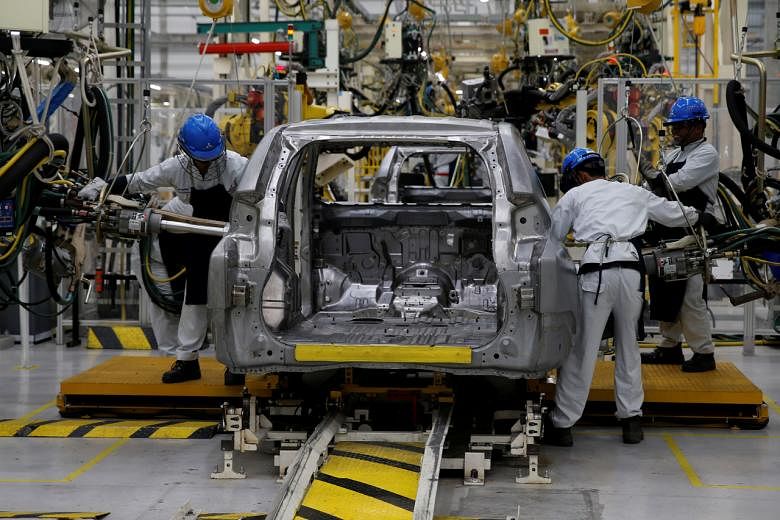JAKARTA (BLOOMBERG) - Indonesia's efforts to revive the economy took a stumble as coronavirus outbreaks forced factories in one of its biggest manufacturing hubs to shut.
South Korea's LG Electronics, and Japan's Suzuki Motor and NOK Corp were told to stop operating their facilities in Cikarang, West Java, after more than 300 workers at the industrial area tested positive for the new coronavirus.
President Joko Widodo has sought to turn the pandemic into an opportunity to set Indonesia on a path toward becoming a developed country.
He pledged to ramp up state spending after the economy fell into its first contraction in more than 20 years.
Meanwhile, the new clusters and the rising number of infections may keep offices and factories shut while consumers are opting to stay home.
"The prolonged local outbreak remains a major risk to the recovery, especially because economic centres are still hot spots," economists Euben Paracuelles and Rangga Cipta, at Nomura Singapore, wrote in a report.
"This will keep household and business cautious even if no lockdown is reinstated."
Indonesia added more than 3,000 new virus cases on Friday (Aug 28), another record, with South-east Asia's highest death toll at more than 7,000 people.
The surge in new cases could keep investors and Indonesians with higher spending power wary, said Mr David Sumual, chief economist at PT Bank Central Asia.
Spending by such consumers would otherwise bring a significant multiplier effect to the economy as they make bigger purchases, he added.
Manufacturing contributes nearly 20 per cent to gross domestic product, while household consumption accounts for about 60 per cent.
Capital Jakarta, which boasts the highest concentration of wealth, decided to extend social distancing measures through Sept 10 and keep cinemas shut.
"Testing, tracing and isolation should become the basis for policy-making," said Ms Nurul Nadia Luntungan, a public health expert at the Centre for Indonesia's Strategic Development Initiatives.
An on-off restriction policy must be carried out until a vaccine is discovered, she said.











